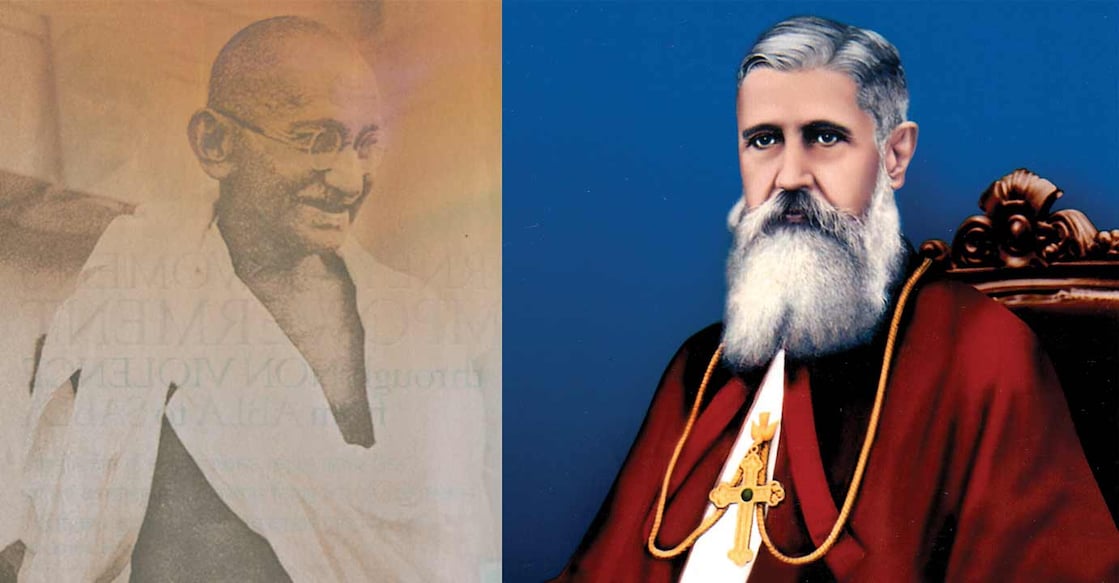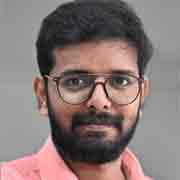An Assyrian priest's khadi cassock and its lingering connect with Gandhi & Nehru

Mar Abimalek Timotheus, an Assyrian priest who spent a major part of his life in Kerala's Thrissur, could empathise with the freedom fighters due to the plight of his own folks in his native place.
Mar Abimalek Timotheus, an Assyrian priest who spent a major part of his life in Kerala's Thrissur, could empathise with the freedom fighters due to the plight of his own folks in his native place.
Mar Abimalek Timotheus, an Assyrian priest who spent a major part of his life in Kerala's Thrissur, could empathise with the freedom fighters due to the plight of his own folks in his native place.
The clergy's uneasy relationship, mostly, with India’s valiant freedom fighters who fought for freedom from the British is history, but pious exceptions adorn the altar of the country's struggle for Independence.
Mar Abimalek Timotheus, an Assyrian priest who spent a major part of his life in Kerala's Thrissur, could empathise with the freedom fighters due to the plight of his own folks in his native place of Mar Bisho, a village lorded over by the Ottaman Empire in its last leg.
Mar Timotheus was a priest of the Church of the East who served as Metropolitan of Malabar and All India from 1907 until he died in 1945.
Though he died two years before the country won Independence from the British, he had made his sentiments for the movement clear. His meetings with Mahatma Gandhi and Jawaharlal Nehru, stalwarts of the Independence Struggle, would vouch for this.
The details of the meetings are well recorded in a biography of Mar Themotheus written by Dr Mar Aprem Metropolitan, the head of the church faction known as the Chaldean Syrian Church, a congregation with a presence confined to Thrissur in Kerala.
“When Pandit Jawaharlal Nehru was visiting Trichur on Friday, May 29, 1931, on his return from Ceylon with his family, he visited the Metropolitan's Palace and had tea with Mar Timotheus. Mr. Nehru and his wife Kamala along with their only daughter Indira (Present (the then) Prime Minister) were received by Mar Timotheus along with the local secretary of the Indian National Congress, Kurur Nilakantan Nambudiripad. Though the interview was very brief, Nehru was very much impressed by the personality of Mar Timotheus,” the book titled "Mar Abimalek Timotheus: A Biography" states.
Mar Timotheus had a meeting with Gandhi during his visit to Thrissur in 1934. It was arranged by K N Nambudiripad. “When Mar Timotheus was ushered into the room where Mahatma Gandhi was sitting on the floor for the interview, Mahatma Gandhi pointed to the sole chair kept in the room for the foreign Bishop to be seated. Mar Timotheus, to the utmost surprise of Mahatma Gandhi, refused to sit on the chair but squatted on the floor along with Gandhi. The national leader was greatly impressed by such gesture of this foreigner. Mar Timotheus explained to Mahatma Gandhi that he was an Asiatic like Gandhi. He believed in the Independence of the Indian people. Being an Assyrian and as one who waged a relentless war for the freedom of his compatriots he could understand what it meant to be under some other people,” Mar Aphrem writes in his book.
The book also states Gandhi was impressed by Mar Timotheus for wearing a Khadi cassock at the time of his meeting with the top priest.
“The church authorities were not impressed by Mar Timotheus's attitude towards the leaders of the Independence movement. They had asked him not to support the movement. However, he told them he understood the value of freedom,” Mar Aphrem told Onmanorama over phone.
No records pertaining to the communication between Timotheus and his higher-ups on the matter exist, he said. Mar Aphrem said Jawaharlal Nehru had mentioned his meetings with Timotheus in his work “An Autobiography with Musings on Recent Events in India”.
Historians, however, are not fully convinced with the argument projecting Timotheus as a pro-independence movement activist.
“Mar Timotheus had to associate himself with the British more than many other Bishops of the day when he came to India. However, it is a fact that there was a progressive transformation in his attitude towards the freedom movement and its leaders over the years. It is evident from his meetings with Gandhi and Nehru. Notably, he came here at a time when a lot of issues had been happening not only outside but within the church itself. It's significant that he found time to get involved in the political matters amid all such crises,” a historian, who did not wish to be named, told Onmanorama.
Mar Timotheus was declared a saint by the Church of the East in 2019. The decision to canonise Mar Abimalek Timotheus was taken by the synod held at Erbil in Iraq.

